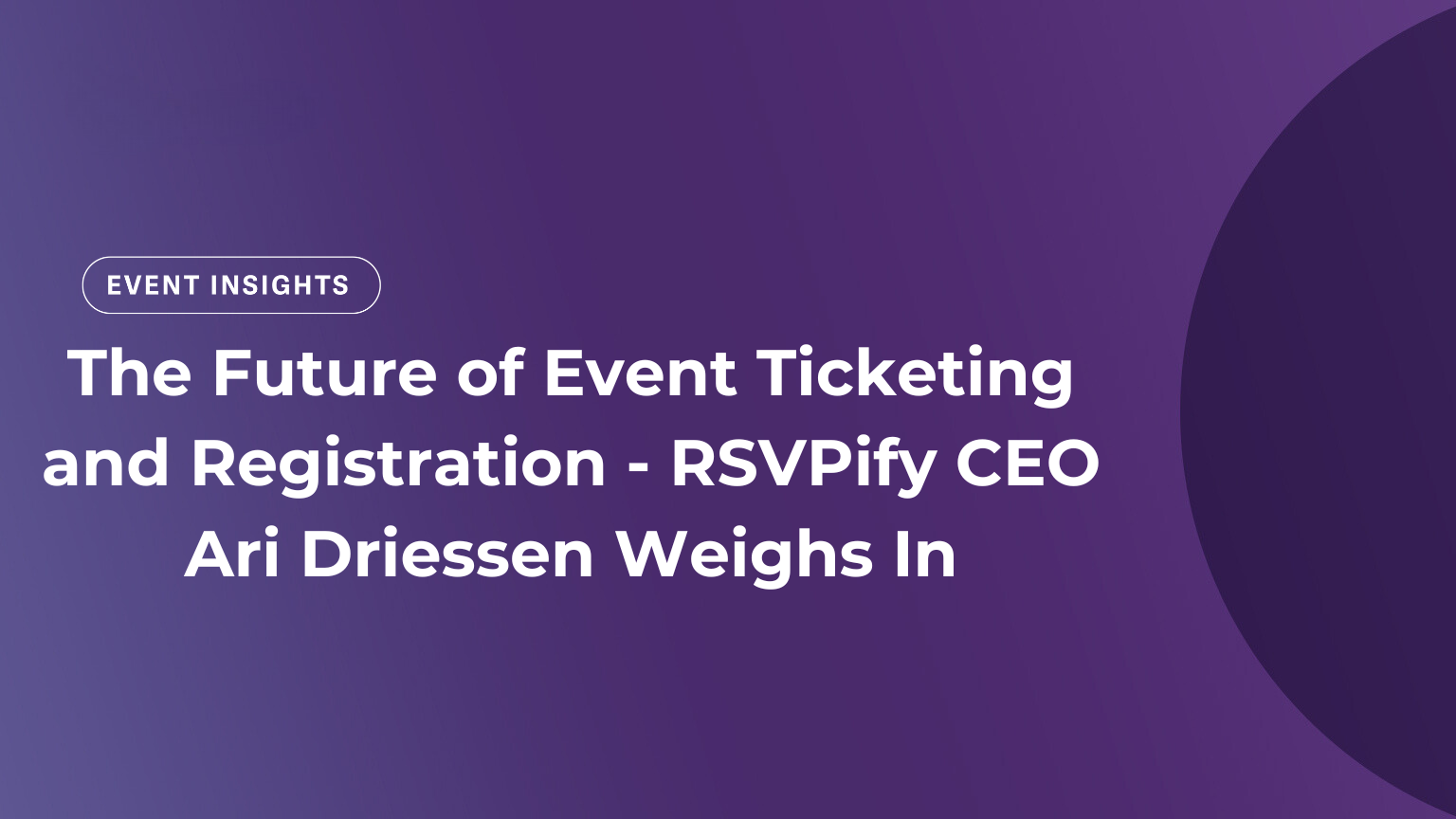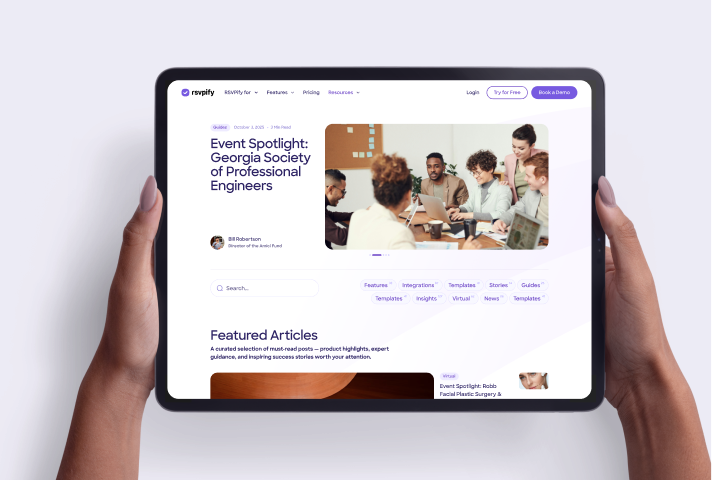Back to all posts
May 19, 2025

As the events industry continues to evolve in 2025, event registration and ticketing are no longer just administrative processes—they’re critical touchpoints that shape the entire attendee journey. According to Ari Driessen, CEO of RSVPify, in his recent interview with Meaghan Maybee of pc/nametag “Event registration isn’t just the first step; it’s the first experience. How you handle that moment sets the tone for everything that follows.”
Modern event planners are leveraging these touchpoints to improve personalization, streamline operations, and maximize event ROI.
The days of generic registration forms and basic ticket sales are over. Today’s attendees expect smooth, intuitive, and highly personalized experiences right from the first interaction. Research from EventMB’s State of the Event Industry Report shows that 85% of event planners consider an easy, customized registration process critical for attendee satisfaction.
In fact, registration abandonment rates are rising when forms are too long or irrelevant, underscoring the importance of thoughtful design.
“We talk a lot about ROI, but there’s also Return on Relationships (ROR). That’s often even more valuable in the long term.” – Ari Driessen
The modern registration process must serve dual purposes: capture essential data and provide a frictionless, engaging experience. Forward-thinking planners are incorporating interactive registration flows, dynamic pricing models, and upsell opportunities that go beyond ticket sales to deepen engagement.
According to the Freeman Data and Insights Report, 74% of event attendees say their registration experience influences their perception of the event before they even arrive. This means a clunky or confusing registration process can negatively affect attendance rates and attendee satisfaction before the event has even begun.
One of the primary challenges planners face is balancing the need for critical attendee data with the demand for a fast and convenient registration process. Long, complicated forms increase the likelihood of drop-offs, while minimal data collection can leave planners without the information needed to personalize experiences.
Solutions to this challenge include progressive profiling—asking only the most essential questions upfront and gathering additional information through follow-ups or at later touchpoints. Many planners are also using AI-driven platforms that recommend sessions and experiences based on registration responses, further personalizing the event journey. Finally, strategic use of event ticketing tiers and promotional strategies to target specific segments is a must.
About the Author
Adam Hausman co-founded RSVPify in 2013 and has been passionate about event tech and ticketing software ever since. Also founder of Greenlight Growth Marketing, he holds degrees from Indiana University (BA English/Psychology 2008) and the University of Illinois-Chicago (M.Ed. Secondary Education 2012). He lives in Maine with his wife, 2 kids, and 2 annoying cats.
Get the latest product updates, event planning tips, and industry insights — straight to your inbox.
You can unsubscribe at any time. Your email will only be used to send RSVPify updates and will never be shared.
